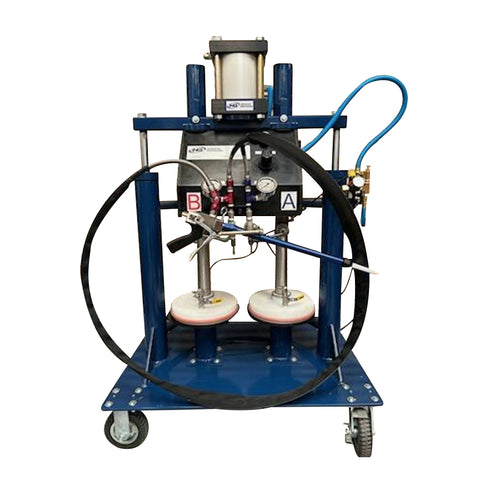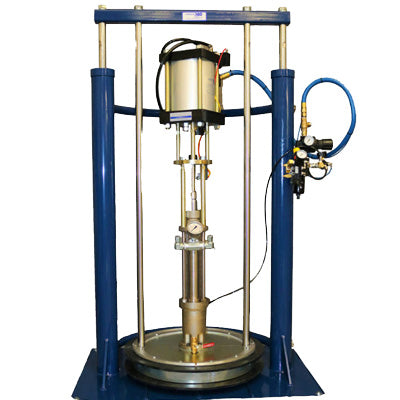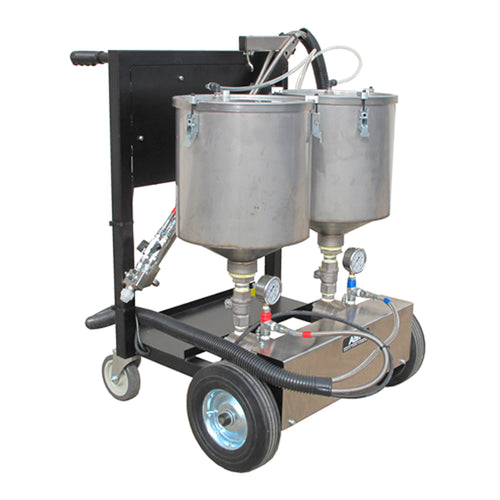In expansion joint sealing, choosing the right sealant is critical for long-term performance of the infrastructure. Bridges especially need to be sound in structure and safe for use. Two of the most commonly used products for this application are DOWSIL™ 902 RCS sealant and Sika Sikasil®-728 RCS sealant.
Both are great options for expansion joint sealing, but one may be more fit for your needs than the other. We take a closer look at both products and compare DOWSIL 902 RCS versus Sikasil-728 RCS joint sealant, so you can better decide which is right for you.
DOWSIL 902 RCS Review
DOWSIL 902 RCS is a two-part, self-leveling silicone sealant. It is designed to seal expansion joints and is primarily used on bridges with 1 to 3 inch joint widths. It can be used in new construction as well as bridge repair, including with irregular surfaces. The DOWSIL 902 RCS expansion joint sealant is not only self-leveling and able to bond to itself but also fast curing and easy to install for a quick return to bridge service.
Other notable key features and specs of the Dowsil 902 RCS joint sealant include:
-
Ultra-low modulus
-
Good weatherability
-
Cold-applied
-
Durable and long service life
- High movement capabilities
Sikasil-728 RCS Review
The Sika Sikasil-728 RCS sealant is a two-part, neutral cure silicone sealant. It is self-leveling and can be used in horizontal expansion joints including highway and bridge joints, plaza decks, parking decks, driveways, and more. The Sikasil-728 joint sealant is defined by Sika as being very rapid cure, and it is designed to meet some ASTM, AASHTO, and DOT compliance standards.
Other notable key features of the Sikasil-728 rapid cure system include:
-
Ultra-low modulus
-
High elasticity and flexibility
-
Good weatherability
-
Jet fuel resistant
-
Wide service temperature range
Comparing DOWSIL 902 Vs. Sikasil-728 Sealants
While both materials are a popular choice for traffic-bearing expansion joints, there are a few important distinctions that could help you determine which product is a better fit for your needs.
| Feature | DOWSIL™ 902 RCS | Sikasil®-728 RCS |
| Product Type | Two-part, silicone rubber sealant | Two-part, neutral cure silicone sealant |
| Substrate Materials | Asphalt, concrete, masonry | Concrete, steel, glass, aluminum, tile, ceramic, masonry, brick, stone, and granite |
| Service Temperature | -50°F to 300°F | -80°F to 350°F |
| Tack-Free Time | 50 minutes at 77°F | 25 minutes at 77°F |
| Skin Time | 12 minutes at 77°F | 10 minutes at 77°F |
|
Elongation at Break (ASTM D-412) |
> 1200% | > 1000% |
| Sag Flow | Self-leveling | Self-leveling at 120°F (ASTM C-639) |
| Resistances | Sunlight, rain, snow, ozone, and extreme temperatures | Weathering, road salts, jet fuel, and extreme temperatures |
| Packaging |
Two 20-oz. EZ Pak sausages Two 4.5-gal bulk plastic pails |
Two 20 oz. sausages Two 4.5-gal pails Two 52-gal drums |
**See the product's individual datasheet for more details
When it comes to similarities, DOWSIL 902 and Sikasil-728 have a lot in common. Both silicone sealants are two-part, low modulus, self-leveling, and rapid curing materials with good weather resistance. They also are both designed primarily for horizontal joint sealing up to 3 inches when a quick return to service is a priority.
While they are generally similar in their properties and application, the devil is in the details. Sika promotes the Sikasil-728 RCS silicone sealant for joint sealing applications and as being compatible with more substrate materials. On the other hand, DOWSIL 902 is positioned primarily for bridge expansion joints and for use with only asphalt, concrete, and masonry.
Other notable differences between DOWSIL 902 RCS and Sikasil-728 RCS are with their service temperatures, tack-free times, skin times, and elongation at break percentage. The DOWSIL 902 RCS bridge joint sealant has a narrower service temperature range as well as a longer skin and tack-free time than the Sika 728 RCS. DOWSIL 902 RCS does have a higher elongation at break percentage than Sikasil-728. Sika also explicitly calls out Sikasil-728 RCS as meeting the requirements of some AASHTO reports and state DOT approvals while this is not specifically mentioned by DOWSIL.
While both products are available in sausages and pails, you can also get the Sikasil-728 sealant in drums as needed.
How to Choose Between DOWSIL 902 RCS and Sikasil-728 RCS
While both sealants are great solutions for horizontal expansion joint sealing, you will want to ensure that you are using the right one for your specific applications. When choosing between the two, you should consider the following factors:
- Substrate and application compatibility
- Cure time, tack-free time, and skin time
- Resistances
- Service temperature
- Elongation
- DOT requirements
- Availability
- Priming needs
- Budget
Application & Dispensing
Regardless of whether you use DOWSIL 902 RCS or Sikasil-728 RCS, the next step is ensuring that it is applied properly so you get optimum results. Both manufacturers outline different surface preparation steps and may recommend a primer for the best results.
Correct application also requires proper mixing and dispensing. Failure to do so could lead to the wrong mix ratios or inconsistent dispensing. Ultimately, both could negatively impact the durability and longevity of the finished product. These issues can be mostly avoided with the right dispensing equipment. The HG 300 bridge expansion joint sealing dispensing system, for example, is made for accurate and precise dispensing of two-component materials, and it is compatible with both DOWSIL 902 RCS or Sikasil-728 RCS. Altogether, equipment like this can make the dispensing and application of either material easier and more effective.
Have More Questions?
Both materials could be a great choice, it just depends on your specific needs. If you need help dispensing and applying these materials, this is where we can help. We have dispensing experts and carry equipment that is designed with these applications and materials in mind. We can provide you with insights on how to optimize your dispensing process or answer any questions.
Dispensing.com is not affiliated with DOWSIL™. DOWSIL™ is a registered trademark of Dow Corning Corporation, a wholly owned subsidiary of The Dow Chemical Company.








